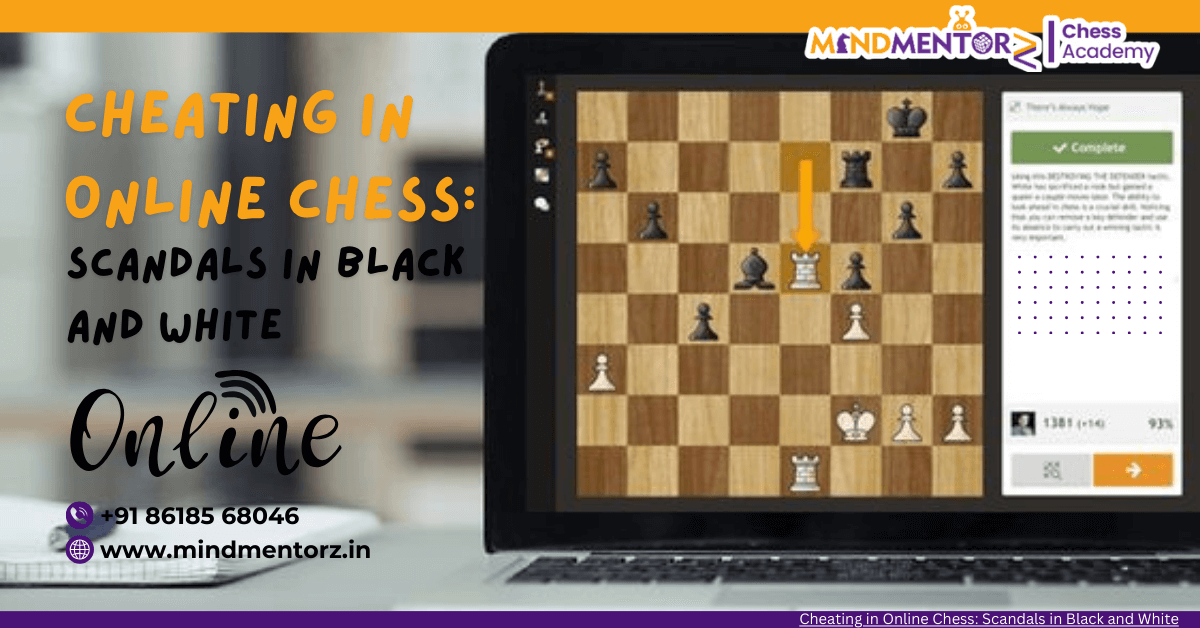
As the pandemic has propelled online chess to newer heights, so has it fuelled cheating online in the game. The latest rumour concerns FIDE’s online University Tournament where 19 players got disqualified including the winner, a former women’s champion from Ukraine.
23 year old lulija Osmak, the 2017 Ukrainian Women’s Champion, was disqualified after a statistical analysis was done on five of her games from the finals. Osmak who scored 4.5/5 in the final of the Women’s Rapid section of the 1st FIDE World University Online Chess Championship, was replaced by Julia Antolak and the score changed to 0/5.
Though Osmak has expressed her willingness to go for a lie-detector test against the verdict, and The Fair Play Panel of the event does not claim any “proof of actual cheating”, the online board game seems to be infested with the virus of foul play.
The potholes of online chess
In August 2020, chess.com revealed statistics on how online accounts were sealed following the rise in online cheating. Even before the onset of the pandemic, the online chess site was banning around 6,000 players a month on the grounds of foul play. By June 2020, the statistics rose to nearly 17,000. Shockingly, titled players were also found to have gone ‘illegal’. Of the 400 accounts of players with titles that were closed, 46 were that of Grandmasters.
Though the online boom has favoured the popularity and reach of chess, the online platforms make cheating easier and hard to overlook. The FIDE World University Online Rapid Chess Championship might have turned a full spotlight on the issue but it could be just one among the many.
For FIDE’s experts, it took a little more than 70 hours to analyse 5036 games. The decision was made based on:
Statistical evidence
Host Internet Platform (HIP) evidence
Physical Evidence
Expert opinion
The panel claimed that they are not validating any proof of cheating and that the black-marked players are free to compete in over-the-board chess events.
Behind the Scenes: The give-aways of online cheating in chess
Using a computer program alias a chess engine, while playing online is one of the common ways players cheat. According to FIDE President Arkady Dvorkovich, computer-assisted cheating is a “real plague of contemporary chess”. With the help of computerised chess engines and Apps, players can ace their games with accuracy and speed. Also, they can get a prompt from the better-rated ones on an electronic device.
Read more on Machine Intelligence in Chess
Unlike in over-the-board games, where the arbiter can monitor closely and the open scenario of the players facing each other, online games make it hard to detect any fraudulence.
An experienced player would be able to detect patterns that would give away attempts to cheat. Engines hold a very strange way of prophylaxis (recognising a move that prevents the threat from an opponent), as they do it in a more arithmetic manner rather than strategic, as the human players do.
The engine always tends to avoid a defensive move. With an innate agenda for counter-attack, a chess engine when threatened will threaten back, curbing the opponent from playing that move again. The engine will opt for a defensive mode only when the opponent plays all the moves right and there is no further way to counter. A human player does not have that much energy to stay sharp and counter-attack every move which is a sure sign of a ‘real’ brain compared to a programmed one.
Also when a new online account has a high accuracy level and high win percentage, it looks suspicious.
As Grandmaster Pravin Thipsay explains, when it comes to Grandmasters, the chances of getting away with cheating are more. One can play normal moves and when a crucial point comes, seek the help of an engine. Beginners are easily caught as they tend to depend solely on the engine and use it in every move.
Lately, Armenian GM Tigran Petrosian, was banned for life from playing on chess.com events as the site’s Fair Play team found out that he was cheating on his opponent Fabiano Caruana in the semis and finals as per reports on The Guardian.
Measures to prevent cheating in online chess
The Magnus Carlsen Invitational online tournament, one of the initial events that were held during lockdown, had stringent measures to counter any fraud attempts. All the players were required to share the screens while playing that can be monitored by the chief arbiter. There was a webcam that covered the individual players with the addition to two recording cameras at different angles throughout the matches. Games were reviewed by an anti-cheating software and no other software was permitted to open on the computer.
With cases of online cheating on the rise, today most online tournaments are adopting stringent measures and anti-cheating safeguards.
FIDE’s new rules for online chess
To let your child ace the game of intelligent minds without the back-up of any hanky-pankies, contact MindMentorz, the premium chess coaching institute in Bangalore for kids. We are a team of passionate players who believe in nurturing young minds through the right tracks of cognitive training through chess.
